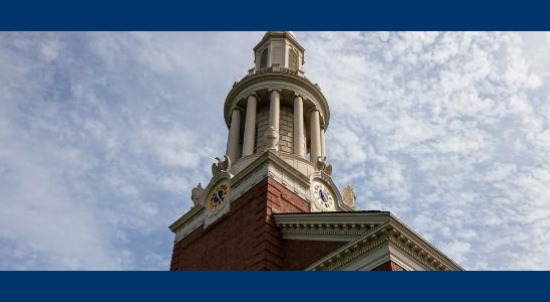
Corinthians (1)
Published: Spring 2024
Description
Paul’s often-quoted first letter to the Corinthians addresses the issues that arose when early Christians lived in community. Those problems in the first century are remarkably applicable to those of Christian communities in the twenty-first century. This letter was written about twenty years into Paul’s ministry and work among the Gentiles. The Corinthians’ divisiveness and separation ran counter to Paul’s vision of the fulfillment of God’s promised new age.
This study offers an opportunity to reflect on the meaning of being in a community where members are as likely to disagree on some questions as they are likely to agree. It also helps learners think about living in the world beyond the Christian community.
Course Takeaways
- Explore Paul's guidance on fostering unity within the Corinthian community despite disagreements and divisions.
- Examine Paul's responses to ethical and social issues, including matters of personal conduct, legal disputes, and the dynamics of marriage and relationships.
- Reflect on Paul's teachings on spiritual growth, sacramental practices like the Lord's Supper, and the theological concept of resurrection.
Meet the Instructors
 Professor Attridge, dean of Yale Divinity School from 2002 to 2012, has made scholarly contributions to New Testament exegesis and to the study of Hellenistic Judaism and the history of the early Church. His publications include Essays on John and Hebrews, Hebrews: A Commentary on the Epistle to the Hebrews, First-Century Cynicism in the Epistles of Heraclitus, The Interpretation of Biblical History in the Antiquitates Judaicae of Flavius Josephus, Nag Hammadi Codex I: The Jung Codex, and The Acts of Thomas, as well as numerous book chapters and articles in scholarly journals. He has edited twelve books, including, with Gabriella Gelardini, Hebrews in Context (2016), with Dale Martin and Jurgen Zangenberg, Religion, Ethnicity and Identity in Ancient Galilee; and the centennial Terry Lectures, The Religion and Science Debate: Why Does It Continue? Professor Attridge served the general editor of the HarperCollins Study Bible Revised Edition (2006). He has been an editorial board member of Catholic Biblical Quarterly, Harvard Theological Review, Journal of Biblical Literature, Novum Testamentum, and the Hermeneia commentary series. He has been active in the Society of Biblical Literature and served as president of the society in 2001 and in the Catholic Biblical Association, of which he was president in 2011-12. He was elected to be a Fellow of the American Academy of Arts and Sciences in 2015. Professor Attridge is a fellow of Saybrook College.
Biography
Professor Attridge, dean of Yale Divinity School from 2002 to 2012, has made scholarly contributions to New Testament exegesis and to the study of Hellenistic Judaism and the history of the early Church. His publications include Essays on John and Hebrews, Hebrews: A Commentary on the Epistle to the Hebrews, First-Century Cynicism in the Epistles of Heraclitus, The Interpretation of Biblical History in the Antiquitates Judaicae of Flavius Josephus, Nag Hammadi Codex I: The Jung Codex, and The Acts of Thomas, as well as numerous book chapters and articles in scholarly journals. He has edited twelve books, including, with Gabriella Gelardini, Hebrews in Context (2016), with Dale Martin and Jurgen Zangenberg, Religion, Ethnicity and Identity in Ancient Galilee; and the centennial Terry Lectures, The Religion and Science Debate: Why Does It Continue? Professor Attridge served the general editor of the HarperCollins Study Bible Revised Edition (2006). He has been an editorial board member of Catholic Biblical Quarterly, Harvard Theological Review, Journal of Biblical Literature, Novum Testamentum, and the Hermeneia commentary series. He has been active in the Society of Biblical Literature and served as president of the society in 2001 and in the Catholic Biblical Association, of which he was president in 2011-12. He was elected to be a Fellow of the American Academy of Arts and Sciences in 2015. Professor Attridge is a fellow of Saybrook College.
Biography
 A graduate of Swarthmore College and Yale University, Prof. Bartlett was the author of numerous publications including Fact and Faith, The Shape of Scriptural Authority, Between the Bible and the Church, and What’s Good About This News? Preaching from the Gospels and Galatians, among others. He was also the co-editor of the Westminster Bible Companion and Feasting on the Word commentary series. An ordained minister in the American Baptist Churches, USA, Prof. Bartlett served as the Senior Minister for congregations in Minnesota, Illinois, and California.
An ordained minister in the American Baptist Churches, USA, Bartlett served as the senior minister of congregations in Minnesota, Illinois, and California. From 1990 to 2005, Bartlett served at YDS on the faculty as well in administrative roles including Associate Dean for Academic Affairs and Dean of Academic Affairs. Bartlett published numerous books and scholarly articles. His books include such notable works as Ministry in the New Testament (Fortress-Augsburg, 1993), Romans: Westminster Bible Companion (Westminister/John Knock, 1995), and Between the Bible and the Church (Abingdon, 1999). Bartlett delivered the 2001 Beecher Lectures, entitled “What’s Good About the News?” published as What’s Good About This News?: Preaching from the Gospels and Galatians (Westminster John Knox Press, 2003.). Dr. Bartlett died in 2017.
Biography
A graduate of Swarthmore College and Yale University, Prof. Bartlett was the author of numerous publications including Fact and Faith, The Shape of Scriptural Authority, Between the Bible and the Church, and What’s Good About This News? Preaching from the Gospels and Galatians, among others. He was also the co-editor of the Westminster Bible Companion and Feasting on the Word commentary series. An ordained minister in the American Baptist Churches, USA, Prof. Bartlett served as the Senior Minister for congregations in Minnesota, Illinois, and California.
An ordained minister in the American Baptist Churches, USA, Bartlett served as the senior minister of congregations in Minnesota, Illinois, and California. From 1990 to 2005, Bartlett served at YDS on the faculty as well in administrative roles including Associate Dean for Academic Affairs and Dean of Academic Affairs. Bartlett published numerous books and scholarly articles. His books include such notable works as Ministry in the New Testament (Fortress-Augsburg, 1993), Romans: Westminster Bible Companion (Westminister/John Knock, 1995), and Between the Bible and the Church (Abingdon, 1999). Bartlett delivered the 2001 Beecher Lectures, entitled “What’s Good About the News?” published as What’s Good About This News?: Preaching from the Gospels and Galatians (Westminster John Knox Press, 2003.). Dr. Bartlett died in 2017.
Biography



